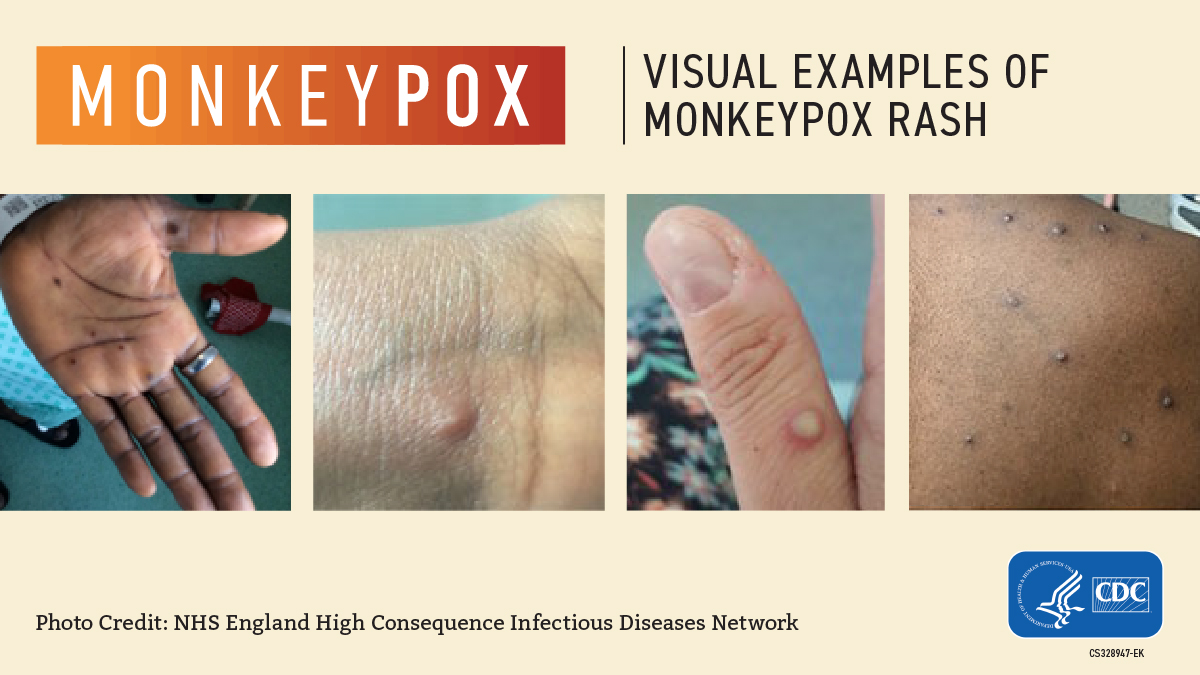Mpox—sometimes called monkeypox—is a rare illness caused by a virus in the same family as the smallpox virus.
Here you can find everything you need to know about Mpox (monkeypox) to better protect yourself, your loved ones, and tribal communities—both urban and rural.
What are the symptoms?
Mpox typically presents as a rash that can be located on the hands, feet, chest, face, mouth, or even on or near a person’s genitals or anus. The rash can look like pimples or blisters, may be painful or itchy, and will go through several stages of appearance— such as developing scabs—before healing.
Other symptoms include the following:
- Fever
- Chills
- Swollen lymph nodes
- Exhaustion
- Muscle aches and backache
- Headache
- Respiratory symptoms (Sore throat, Nasal congestion, Cough)
Symptoms usually start within 3 weeks of exposure to the virus. People who initially have flu-like symptoms typically develop the rash 1–4 days later
The illness typically lasts 14–28 days
How does it spread?
Mpox is spread through close, physical, often skin-to-skin contact with an infected person’s rash, scabs, body fluids, or object and surfaces that they used (clothing, bedding, towels, etc.).
Spread can also occur through sexual contact, such as oral, anal, and vaginal sex, hugging, kissing, sexual gear, and prolonged face-to-face contact. Download our Mpox and Safe Sex factsheets to learn about ways you and you partner(s) can stay safe.
Transmission of the virus can also occur through a pregnant person to their fetus. It can also be transmitted by consuming meat from an infected animal or being bitten or scratched by an infected animal.
How can I protect myself, my family, and my community—especially if I am not vaccinated?
Take these steps to avoid Mpox infection:
- Avoid close, skin-to-skin contact with people who have a rash that resembles Mpox
- Avoid contact with objects and materials that a person with Mpox has used
- Wash your hands often with soap and water for at least 20 seconds—especially before eating or touching your face and after using the bathroom
If you are concerned you have symptoms of Mpox or you have questions regarding this disease, contact your local or state health department. Unless you need immediate medical care, stay home if you are experiencing symptoms.
If you require a medical visit, please call ahead and wear a mask.
Can I get the vaccine?
Currently, there are safe and effective vaccines to prevent the onset of Mpox in those who have been or are likely to be exposed to the virus. Talk to your provider about receiving a vaccine if you believe you have been exposed.
Download our latest factsheets to learn more about Mpox
Information About Mpox (Monkeypox Virus)
Information About Mpox (Monkeypox Virus) and Safe Sex Practices
UIHI continues to monitor the latest developments surrounding cases and the vaccines and will publish additional resources as information becomes available.

